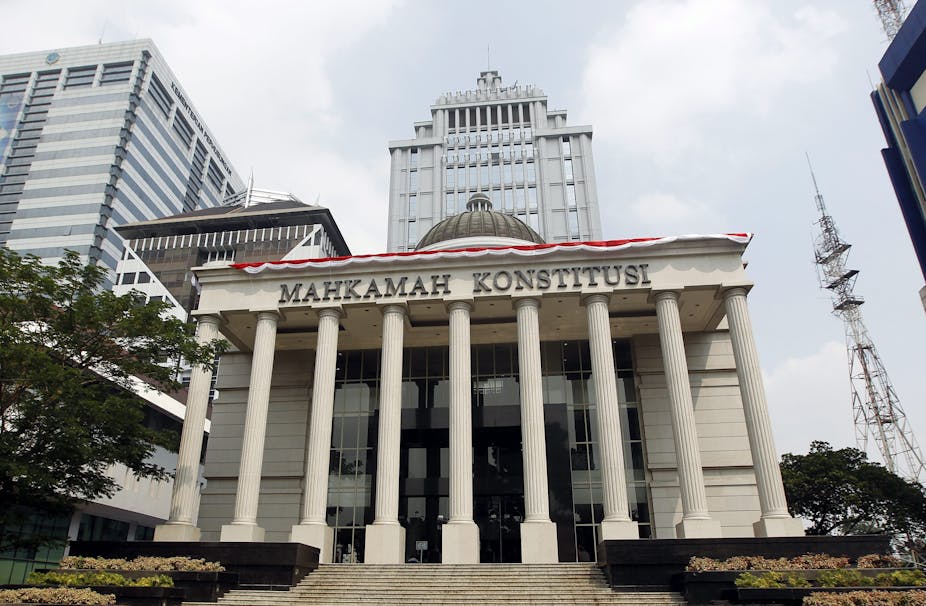In February 2008, Bambang, a surgeon at the Dinas Kesehatan Tentara (DKT) Hospital, an Indonesian military hospital in Madiun, East Java, was reported to police by his patient, Johanes Tri Handoko, regarding his practice permit.
The Madiun District Court acquited Bambang. However, the Supreme Court granted the prosecutor’s appeal on October 30 2013.
The surgeon was found guilty of violating Articles 76 and 79 of the 2004 Law on Medical Practice for practising medicine without a practice permit and for not providing medical services in accordance with professional standards and standard operating procedures. The Supreme Court sentenced him to prison for a year and a half.
But Bambang should not have been imprisoned.
Six years prior, on June 19 2007, the Constitutional Court (which has the authority to assess all provisions of the constitution) had removed the imprisonment provision on those articles.
The Constitutional Court argued that the provision had caused insecurity and fear as a result of disproportionate criminal sanctions stipulated in the regulation. Therefore, doctors who violate the articles can only be sentenced to a fine, not imprisonment.
Bambang’s case is an example of a decision by the Constitutional Court not being enforced. The Law on the Constitutional Court states that the court’s decisions shall be final and binding. This means all decisions should be adhered to and applied. But they are not.
What’s holding it back?
At least two factors result in Constitutional Court decisions on judicial review not being enforced.
First, law enforcers are not aware of the court’s decision. Many legal provisions that have been declared unconstitutional by the Constitutional Court are not well documented. From 2003 to 2017, 574 provisions were declared unconstitutional.
When a law enforcer is dealing with rules, they need to keep up with the changes. This is not easy because the changes are numerous. For instance, there are 15 provisions in the Criminal Code that have been declared unconstitutional from 2003 to 2017.
One case illustrates this problem. On December 13 2004, the Constitutional Court issued a decision that ruled Article 31 of Law No. 18 of 2003 on Advocates as unconstitutional. The article prohibits someone who is not an advocate by profession from acting as an advocate. However, in 2008, some law enforcers still used that article.
Second, the judiciary at times disobeys the Constitutional Court’s decision, as shown in Bambang’s case. The Supreme Court argued that not all Constitutional Court decisions have binding force.
But, under Constitutional Court Law, all Constitutional Court decisions are final and binding. All of the Constitutional Court decisions should be enforced by everyone, including the Supreme Court and the Attorney-General.
Another case is when the Constitutional Court issued a ruling in 2013 that a criminal case can be reviewed more than once. The Supreme Court, however, issued a circular in 2014 restricting criminal reviews to once only.
In 2016, the Constitutional Court ruled that a prosecutor can’t apply for a review in criminal cases. But the Attorney-General is ignoring this and has stated that prosecutors will continue to apply for reviews.
Regulation with a law is the best solution
The solution to the judiciary ignoring the Constitutional Court is to enact a regulation for every norm the Constitutional Court has ruled upon.
This action has actually been regulated under the 2011 Law on Legislation Formulation. The parliament and the government have the authority to regulate a new law based on a paragraph, article and/or section of the law that has been expressly stated in a Constitutional Court decision. This new law is also intended to prevent a legal vacuum for the norm after the Constitutional Court decision.
However, no new law based on a Constitutional Court decision has been regulated.
Indonesia requires the political will from legislators to release new regulations in response to the Constitutional Court’s rulings. Otherwise the highest court will continue to be ignored and unconstitutional norms will continue to be applied to citizens.


